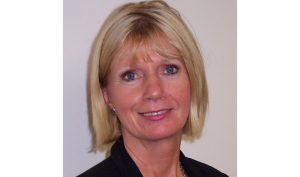Still shunned: how England is failing the unmarried mothers who lost their babies

Published by Professional Social Work magazine, 23 March, 2023
The plight of unmarried mothers in times gone by is well documented.
Shame and stigma meant that pregnant unmarried women were frequently shunned by society. Lacking support, many felt they had no choice but for their child to be adopted. Separated from their babies, often in very harsh circumstances, they were then left to deal alone with their grief.
The negative impact of past adoption practices on birth mothers and their children who were adopted was evidenced in the recent inquiry of the government’s Joint Committee on Human Rights: The Violation of Family Life: Adoption of Children of Unmarried Women 1949- 1976. Yet the government response, published last month, is inadequate.
They offer their deepest sympathies to all concerned while arguing that blame and responsibility cannot be apportioned to them, so there will be no formal apology. Nor have they offered any resources and practical help to address the suffering recounted in the evidence presented to the committee by some of these mothers.
Unmarried women were sent away to mother and baby homes to give birth to their children shrouded in secrecy. They were then expected to return to ‘normal’ life as if nothing significant had happened to them, and to be grateful that the stigma of having an illegitimate baby would no longer affect their lives.
How naïve to expect that a mother could simply lose her baby to adoption and go back to normal. Over the years, many of these mothers have suffered the lifelong effects of unresolved and wounding grief that has impacted their mental health and wellbeing. These effects cannot be underestimated as it doesn’t just affect them but also their families and children.
The government acknowledges how important tracing and intermediary services are for birth mothers from this era, who are desperate to know if their son or daughter has had a good life and if they are alive and well. They recognise these services are both prohibitively expensive, in short supply, and often involve lengthy delays. But their response suggests they think that a change in the law (passed in 2002 and implemented in 2005) giving birth relatives the right to request an intermediary service is sufficient.
What’s the point in having such an important law if birth mothers cannot find or afford such services? The government says it will direct adoption agencies to respond to access to records requests more quickly, while showing no recognition of the practical and financial constraints that impact agencies in providing these services in a timely way.
They also accept that the current suspension of the NHS death registration tracing service provided to adoption agencies for many years is detrimental. The impact of the pandemic is blamed, but there is no reassurance the service will be reinstated.
This response looks particularly inadequate when compared to the outcome of the Child Migrants Inquiry which investigated the practices that led to thousands of British children being uprooted from their families and country and sent to Australia, New Zealand, Canada and former Rhodesia.
Although these situations are not directly comparable, that inquiry concluded that these children were victims of a fundamentally flawed policy and should receive some recompense. All former British child migrants were able to apply to a financial redress scheme that was set up by the government. For birth mothers and others who have been affected by adoption, there is nothing of this kind offered.
Funding could be used for dedicated tracing and intermediary services and other support, prioritising the ‘before it’s too late’ group of birth mothers (mothers who are in later life and who have little time left to resolve their issues), as well as adopted people and other birth relatives affected by practice in this area.
Such an approach has been taken by the Scottish government. Scotland’s former First Minister Nicola Sturgeon issued an apology to people affected by pressure to give up their children to adoption from the 1950s to the 1970s.
And earlier this year the Welsh government’s deputy minister for social services Julie Morgan made an apology to those affected by historic adoption practices. She stated further funding for adoption services would be made available.
The lack of adoption support for all adults affected by adoption continues to be a concern. The urgency to address this has recently been acknowledged by the National Adoption Strategic Team (a Regional Adoption Agencies leaders programme funded by the Department for Education). This, in turn funds the Improving Adoption Services for Adults – A Time for Change Project, looking into updating practice guidance and proposing solutions to barriers to tracing and support services faced by adopted adults and their birth relatives.
The project is being led by a team from the University of East Anglia in collaboration with the adoption counselling service PAC-UK.
Knowing what needs to be done is one thing, agencies having the resources to deliver affordable services to adults affected by adoption is another. If the government truly is “really profoundly sorry” for the pain and distress that occurred, then they should prove this by issuing a formal apology and providing immediate practical support to bring some solace to those affected by these adoption practices.
Julia Feast is a social work consultant specialising in life-long adoption issues and is involved in the Improving Adoption Services for Adults – A time for Change Project
